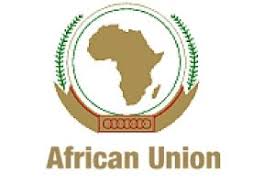Africa’s Economic and Social Crisis and the War in Ukraine: African Union’s (OAU) Message

Marking its 20th year of transformation from Organisation of AfricanUnity (OAU) to African Union (AU), the 54-member continental organisation, said in an official message circulated to all Heads of State and Government that Russia-Ukraine crisis is eroding economic achievements that have accumulated down the years throughout Africa.
Russia-Ukraine crisis has considerably changed the existing geopolitical, state and institutional order, and making it more difficult for the collective capacity and parameters toward building Africa. The Russia-Ukraine crisis poses numerous complex challenges in many African countries.
“More recently, Africa has become the collateral victim of a distant conflict, that between Russia and Ukraine. By profoundly upsetting the fragile global geopolitical and geostrategic balance, it has also cast a harsh light on the structural fragility of our economies,” the statement said.
“The most emblematic sign of these fragilities is the food crisis following the climatic disorders, the health crisis of COVID-19, amplified today by the conflict in Ukraine. This crisis is characterised by a shrinking world supply of agricultural products and a soaring inflation of food prices. So, what to do in the face of all these challenges?” it further emphasised.
In the light of the seemingly endless Russia-Ukraine crisis and global instability, Africa is particularly confronted with massive youth unemployment and the persistent precariousness of the women of the continent are other challenges that call for urgent responses, because this category of the African population no longer accepts to be a passive spectator of its destiny.
In addition, to all these constraints, the current economic crisis which is burdened by the debt, the climate and energy crisis, in turn, affects food prices through the exorbitant cost of transport, while the health crisis following the outbreak of COVID-19, weakens the production capacities of the various economic sectors.
The African Union statement has also acknowledged the challenges posed by all-year round terrorism, violent extremism and transnational crime (human trafficking, drug trafficking, arms trafficking). Terrorism, in particular, is constantly gaining ground. Today, many States devote a good part of their resources and energies to fighting or protecting themselves against this phenomenon, thus depriving vital sectors such as health and education of the resources they need.
“The continent is also faced with the disasters generated by bad governance, which can no longer be concealed by the demand for transparency imposed by a population that is increasingly open to the world through the new information and communication technologies,” it further said.
The African Union, however, expresses hope that through a series of actions and strategic mechanisms, African countries world be able to overcome development difficulties and defficiencies.
Then there is the African Continental Free Trade Area (AfCFTA), which entered into force in 2021, making Africa the largest common market in the world and accelerating continental integration. It reinforces the measures taken in terms of free movement of persons and goods.
But much depends on the collective determination and solidarity demonstrated, to face the challenges in a united and resolute manner, by the African leaders. It depends on the strong mobilisation of African leaders and the effective coordination provided by the African Union.
Reports show that the Russia-Ukraine crisis has twisted the situation in many African countries and are now among the most vulnerable in terms of ensuring food security. In response to the food crisis, it hopes to achieve by building resilience in food security on the African continent – strengthening agri-food systems and health and social production systems to accelerate socio-economic and human capital development.
As far as the resources allow, the African Union will continue addressing health, education, infrastructure, energy, science and research, the sectors whose promotion and realisation are necessary conditions for the development of Africa.
The results have not always matched the targetted ambitions. From the focussed pooling of all energies and geographically dispersed resources will emerge a new Africa, “the Africa we want” which has understandably become the resounding guiding slogan.
There is only one condition: to identify and point out, without complacency, the evils that plague current actions and hinder the effective implementation of decisions, treaties, conventions and strategies in order to provide them with the appropriate treatment.
*
Note to readers: Please click the share buttons above or below. Follow us on Instagram, Twitter and Facebook. Feel free to repost and share widely Global Research articles.
Kestér Kenn Klomegâh, who worked previously with Inter Press Service (IPS), is now a regular and passionate contributor to Global Research. As a versatile researcher, he believes that everyone deserves equal access to quality and trustworthy media reports.
This article has been archived for your research. The original version from Global Research can be found here.


